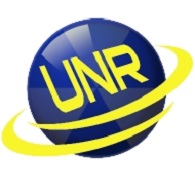CHKDSK /R
NOTE: This utility only checks the windows files for corruption. It will not look at other program's files. If the problem is with a windows file, CHKDSK /R will fix it. However, if the problem is from a file from another program, it will not fix the issue.
There is times a corrupted file from another program will corrupt a
windows file and CHKDSK /R /F appears to have fixed the issue but
later the issue returns. To explain this, I am going to use Quicken.
Lets say file Quickenset.dll is corrupted. When you opened Quicken,
Windows started freezing because it corrupted a Windows file. You
run chkdsk /R /F and Windows is no longer freezing. Then when you
open Quicken, Windows starts freezing again. The cause of the
windows file corruption can be hard to trace. If you ran CHKDSK /R
/F and it fixed the issue but you haven't opened Quicken in a month.
The system will run fine till then. When you do open Quicken, you
may not realize it is Quicken causing the issue.
WARNING: If the
corruption is due to a failing hard drive, running this utility may
make the issue worse. If the hard drive is failing, you will need to
replace the drive. If you are able to access your files. . .
BACK UP YOUR FILES BEFORE RUNNING CHKDSK
/R /F. This way if it is a bad hard drive, you will have your
files backed up. Then run CHKDSK /R /F
Note: Only run Chkdsk /r when you do not need to
use the computer. The process can last anywhere from 45 minutes to
several hours.
If you want to look at the log for the CHKDSK to see the results,
click here
-
Open Command Prompt (Page will open in a separate window)
-
Type CHKDSK /R /F (there is a space between CHKDSK and the / and space between R and /)
 |
-
Press Enter
|
|
-
You will be asked if you want to schedule this volume to be checked the next time the system restarts
 |
-
Press the letter Y
 |
-
Press Enter
|
|
When CHKDSK finishes, you will not know the results unless you look at the log. To see the log, click here
For more information on the syntax of chkdsk, click here
Other tools you can run if this does not help
